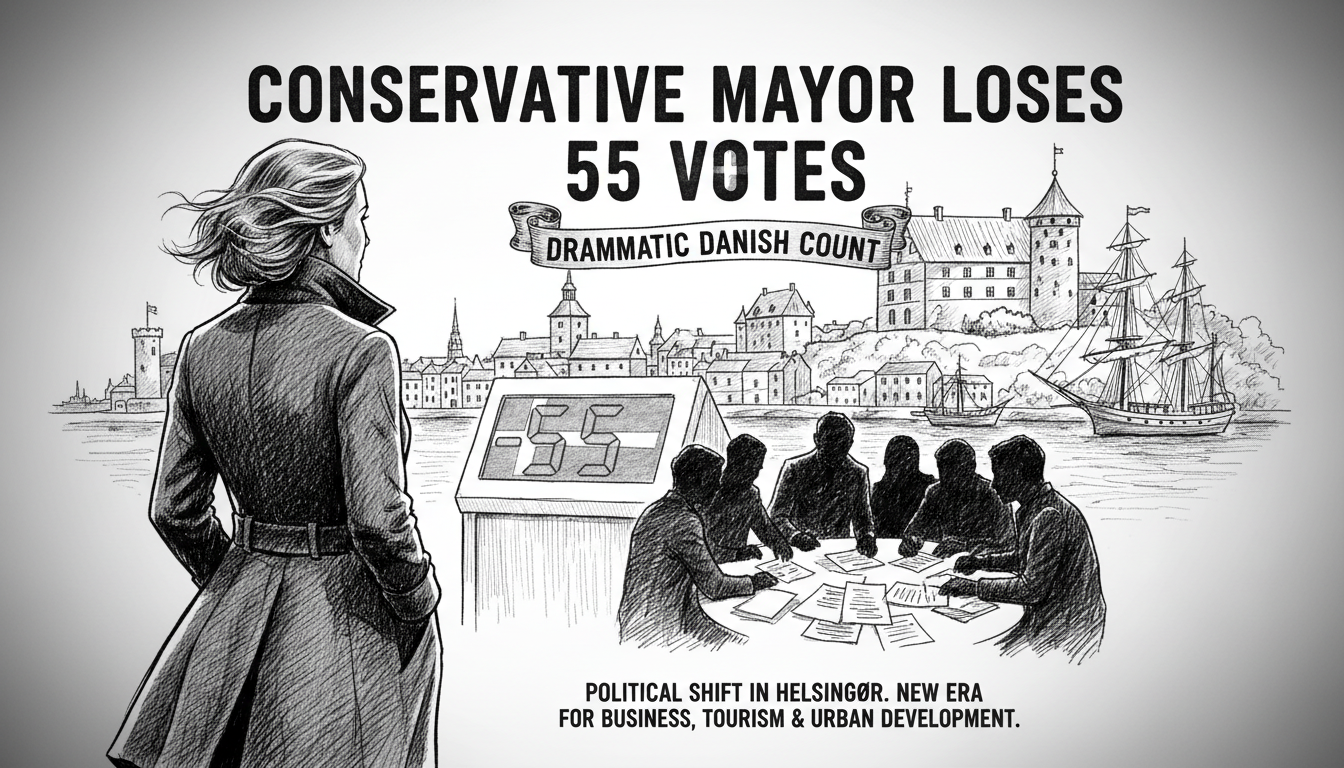A municipal election night in Denmark delivered dramatic scenes as a conservative mayor lost her position by a razor-thin margin. Benedikte Kiær, the longtime mayor of Helsingør, watched her political fate unfold in real time as the final votes were counted.
The Conservative mayor trailed her Social Democratic opponent Thomas Horn by just 55 votes when all ballots were tallied. The narrow defeat unfolded before rolling cameras, capturing the tense atmosphere of the election night. Kiær had served as mayor of the North Zealand municipality for multiple terms, establishing herself as a dominant political figure in the region.
Danish municipal elections determine local leadership across 98 municipalities every four years. These elections impact local tax rates, school policies, and urban development decisions. The close race in Helsingør reflects the competitive nature of Danish local politics, where small vote margins can determine control of municipal councils.
Helsingør, known internationally for its UNESCO World Heritage site Kronborg Castle, faces several pressing local issues. The municipality has been debating major infrastructure projects and managing tourism growth while preserving historical landmarks. Local voters appeared divided on whether to continue conservative leadership or shift toward social democratic policies.
This election result demonstrates how volatile Danish local politics can become. Even established political figures face serious challenges when voter sentiment shifts slightly. The 55-vote difference represents less than 0.5% of the total votes cast in the municipality.
The defeat marks a significant political shift in North Zealand, where conservative parties have traditionally held strong positions. The Social Democratic victory suggests changing voter priorities in the region, possibly reflecting concerns about public services or economic policies.
What does this mean for international observers? It shows that Danish local democracy remains highly competitive and responsive to small voter movements. The outcome will influence local business regulations, cultural funding, and urban planning decisions in the historic city.
The new mayor will immediately face decisions about harbor development, cultural funding, and managing the city's famous Shakespeare festival. International residents and businesses in Helsingør should expect potential policy shifts in local taxation and business support programs.
Danish political analysts note that such close races often lead to coalition negotiations and compromise governance. The narrow margin suggests the new council will need to build broad support for major decisions rather than pushing through partisan agendas.

